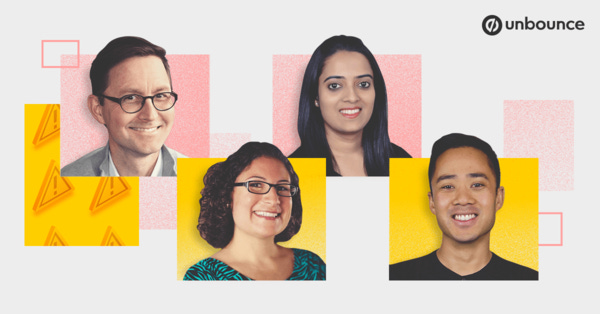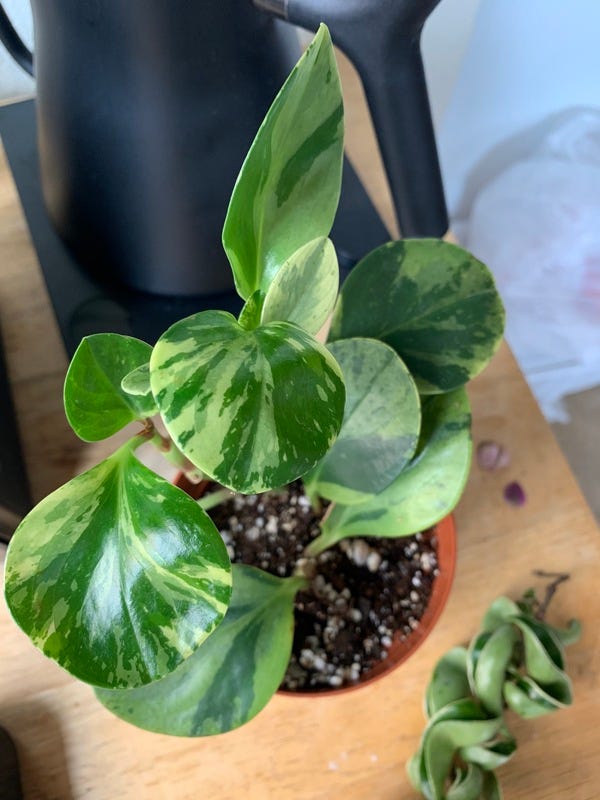Q&A series intro: Coffee marketing failures & their lessons
Hi friends, I’ve been wanting to write about failures for a long while now. So today, I’m excited to introduce the first Q&A post with an industry colleague, discussing two failures he’s dealt with in his career.
Reminder that we’re coming up to the holiday season. If you need a template for your holiday advertising campaign, Later has a handy one.
On a personal note, I went to another plant swap and came back with some wish list plants. A friend was in town this past weekend and we snagged the last two seats of a tasting at Song Tea. I’ve been going to these before they formalized into a reservation system and I always highly recommend it to anyone traveling to SF.
I hope you enjoy this issue on failures! If you’re interested in sharing your coffee marketing failure story (anonymous or not), just reply to this issue.
– Jenn


Coffee marketing failures and their lessons: David Yake
This is the first in a series installment about what we can learn from marketing failures, big or small. The below is an excerpt from the blog post. The original is 1500+ words, which I thought was a little too long for the newsletter.
Failure is a part of doing business. After a certain amount of time operating, you’re bound to fail and that’s okay. Failure can also be used as a learning experience. Earlier this year, I asked my followers if any would be interested in talking to me about their coffee marketing failures – big or small. I was curious to know if people jumped on marketing trends or invested too heavily in a new product. This Q&A series is titled “Coffee marketing failures and their lessons.”
What if you can’t afford to fail? Failures can cost a lot of money, especially for small businesses. As a solution, you learn from other small businesses’ failures to inform your own decisions. Always keep in mind that their failures don’t mean they’ll become your failures. Every small business is different – successes and failures are never guaranteed.
For this first Q&A installment, I interviewed David Yake, co-founder of Camber Coffee in Bellingham, Washington. Camber Coffee is a roasting company @cambercoffee and a retail cafe @camberholly. I’ve loved Camber’s coffee for a long while now. Every coffee I have had from them is consistently beautiful. Their Instagram aesthetic similarly matches with a stunning mix of environmental and people scenes.
We cover two failures here: one when David was working at a second-wave coffee roaster and another when Camber announced a new drink. This interview has been edited for clarity and is not a full transcript.
Jenn: Tell me about a marketing failure in coffee that you’ve done.
David Yake (DY): When I saw your [Instagram] story, the first thing that came to mind is a really short story from a few years ago. When I was working for an old-school, family-owned roaster, there wasn’t a whole lot of structure behind any marketing efforts or brand identity or anything like that. There was a roasting team and some delivery drivers but no marketing department or anyone who had any marketing experience (evidenced by the fact that I was involved with it at all). We were working with a couple of different designers on a possible new brand identity. We’d paid for a few different new logo pitches.
David was in charge of managing the business’ Facebook page at the time. This was pre-Instagram. The Facebook page was only about one to two years old.
DY: We were trying to decide between these two different logo variations and I decided it would be a good idea to put them both up on the business Facebook page and ask for feedback. It turned into a total shit show where people had really strong opinions. People were like, “Why are you changing? Are you under new ownership?” The students [said it’s] “such a corporate move” and people who’ve been following the company for years were really upset. And then one of the designers chimed in with “the other design looks like crap” and started talking shit about the other designers.
I ended up just taking it down after the other employees were like, “What are you doing?” They [said], nothing can be done about it. But what are you thinking? You should’ve run this by someone. It all happened quickly, all of this went down in an hour or two. The other designer with that we ended up going with was kind of hurt that we put their work up without asking, which was totally valid. It was just – everything they could have done wrong went wrong.
If you’re questioning something, run it by someone that you respect and ask. That never hurts.
To continue reading or to share the piece, click here.
AdWords Quality Score: What Marketers Need to Know
[BYLINE] What is the Google Ads Quality Score and how do you improve yours? Learn how to increase the CTR and relevance of your ads and landing pages.

Twitter added: personalization (font size, colors) for your own interactions. It’s testing: notifications when you subscribe to a tweet, ability to follow topics and hashtags, and new filter for spam & abuse in DMs.
Facebook added the Off-Facebook Activity tool and removed the Group chats feature.
Instagram is testing: various effects for Boomerang. It added the ability for anyone to create their own AR effect.


11 Marketing Experts Share Their Marketing Fails (and Lessons Learned)
Even experts experience marketing fails. Find out what important lessons these 11 marketing pros learned from their past mistakes.
6 Facebook Ad Mistakes Marketers Make and How to Avoid Them
Some of the top Facebook advertising experts in the industry share mistakes that can impact your ad campaigns, and show you what to do instead.
A Crash Course in Microcopy: How to Craft the Perfect Words for Social Media Captions
Copywriting tips and techniques for social media managers to write really good microcopy in social media captions, tweets, Stories, and more.


Inside the “largest launch of a produce item in American history”
After two decades of research and development, WA 38 lands this fall. It could disrupt an entire industry. It’s an apple. [Fascinating insight into the apple marketing industry]
Why You Should Try Micromastery
Micromastery is a simple way to learn new skills and improve brain power.
If You Want Engaged Employees, Offer Them Stability
[HBR-gated article- 3 free/month] People need security to do their best work.






